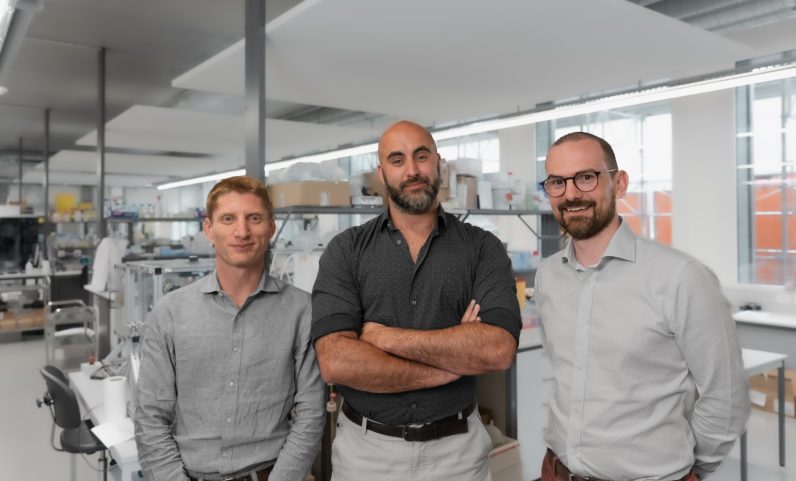Switzerland-based Limula today announced a raise of $6.8mn (€6.2mn) to further develop its technology, which aims to automate cell therapy manufacturing.
Gene and cell therapies have emerged as a promising treatment for life-threatening or difficult-to-manage diseases such as cancer, Parkinson’s, and Alzheimer’s.
Such therapies place healthy genes and cells into the body to repair or replace malfunctioning on damaged ones. But despite their potential benefits, the high cost (up to $4.25mn) of these treatments comes with major accessibility barriers.
Founded in 2020 by Dr Yann Pierson, Dr Luc Henry, and Dr Thomas Eaton, the Swiss startup seeks to replace outdated manufacturing methods that require highly skilled labour and expensive sterile infrastructure.
The founding trio has created a modular device for on-demand manufacturing of cell therapies. This device merges for the first time the functions of a bioreactor and a centrifuge into one single unit, capable of managing a wide range of volumes and cell numbers.
“This unique approach removes the need for transfer steps between different containers or devices, reducing cell stress, cell losses, and the risk of batch contamination,” co-founder Dr Luc Henry told TNW.
It also provides the ability to “manipulate cells with a higher level of control.”

Limula’s founders. From left to right: Luc Henry, Yann Pierson, Thomas Eaton. Credit: Limula
According to the company, the solution’s scalability means that cell therapy providers can use it in the transition from pre-clinical evaluation to clinical trials as well as on the commercial-scale manufacturing of clinical-grade cell products.
A growing market for gene and cell therapy
Limula has already completed the initial proof of concept and has provided early access of its platform to industry and academic partners, including the San Raffaele Telethon Institute for Gene Therapy in Italy.
With the fresh capital, the startup plans to further develop its technology, aiming to meet the good manufacturing practice (GMP) requirements of the European Medicines Agency (EMA), which are necessary for entering the EU market.
LifeX Ventures led the funding round, with participation from Verve Ventures, Zühlke Ventures, and Oxford Seed Fund, among others.
With gene and cell therapies becoming increasingly compelling for the medical sector and investors alike, Lumina is seeking to tap a rapidly growing market – expected to reach $82.2bn by 2032.
While Limula has not provided any still images of the device, you can catch a glimpse of it in the first few frames of the video below:
